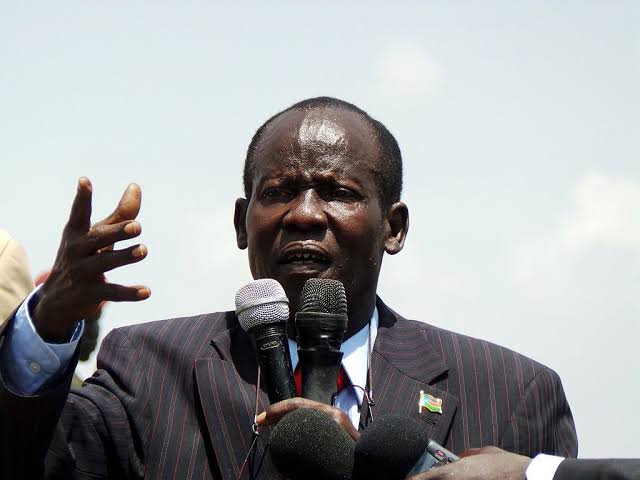
Former South Sudan Vice President Taban Wani has blamed the ruling Sudan People’s Liberation Movement (SPLM) for orchestrating a propaganda-driven campaign that led to his dismissal from office.
In an exclusive interview held in Juba this week, Wani claimed that senior party officials launched a sustained smear campaign targeting his leadership style and integrity. He described the allegations as fabricated and politically motivated, intended to clear the way for loyalists within the party.
“They wanted to remove me long before the public knew of any issues,” Wani said, adding that the campaign falsely attributed mismanagement accusations to him and painted him as disloyal to SPLM ideals.
Taban Wani served as Vice President from 2022 until his removal earlier this year. Official sources cited disagreements with President Salva Kiir and concerns over governance as reasons, but Wani maintains these explanations were mere cover for factional infighting.
Wani also called upon party elders and reform-minded SPLM members to speak out against factionalism and defend internal democracy within the party. He emphasized that unchecked propaganda could damage public trust and weaken national institutions at a time when unity is critical.
Party insiders—speaking off the record—acknowledged growing tensions within SPLM but dismissed Wani’s allegations as attempts to salvage his reputation. They say that his removal followed a collective decision based on performance reviews and party rules, rather than a smear campaign.
Political analysts say Wani’s public accusations could reignite SPLM power struggles heading into the next round of high-level talks. The timing of the claims, they argue, may reflect deeper divisions over reform and control within the party.
Wani concluded the interview by expressing continued hope for national reconciliation and signaling willingness to support unity efforts—provided SPLM commits to genuine internal reform and stops using media outlets as political weapons.
His remarks underscore growing scrutiny of internal party processes and add a new layer to debates on governance and political accountability in South Sudan.

